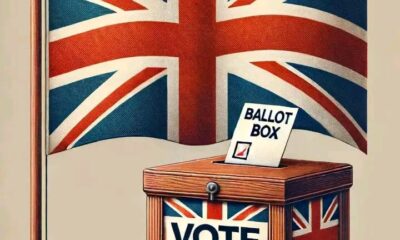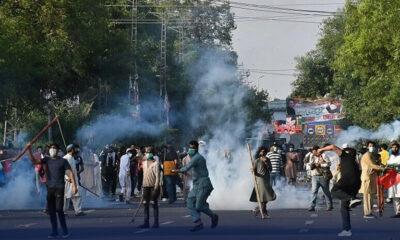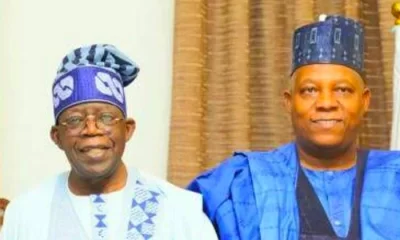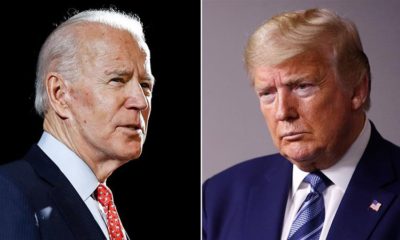Breaking News
Minimum wage: Why state governors, others are dragging their feet
Despite the fact that most states have received increased funding since the gasoline subsidy was eliminated in May 2023, sources informed Vanguard that the increase was insufficient to continue paying the N62,000 minimum wage.
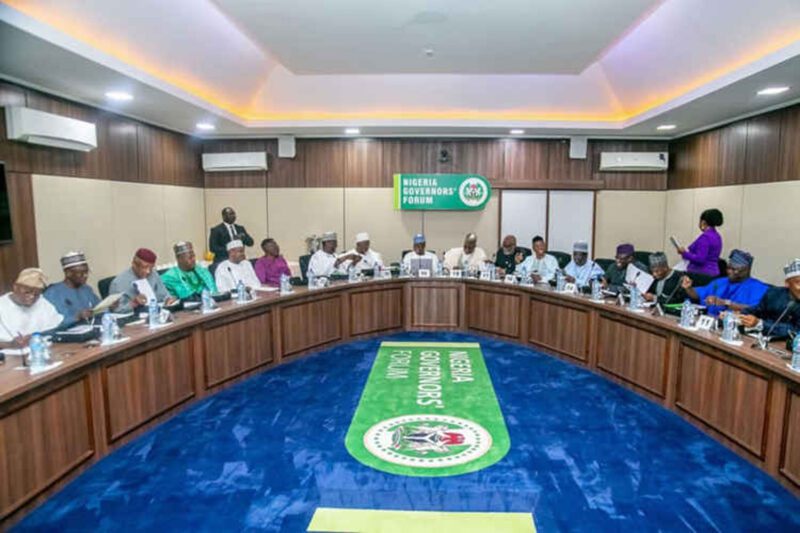
A number of states may require financial assistance or layoff employees in order to pay the N62,000 that the Federal Government and the Organised Private Sector, or OPS, are proposing as the country waits for President Bola Tinubu’s executive bill on a new minimum wage to be presented to the National Assembly.
Despite the fact that most states have received increased funding since the gasoline subsidy was eliminated in May 2023, sources informed Opinion Nigeria that the increase was insufficient to continue paying the N62,000 minimum wage.
In the meantime, the Organized Private Sector, or OPS, stated Wednesday that there was only an alignment of interests rather than any sort of consensus at the recently finished Tripartite Committee meeting on the New National Minimum Wage.
This is coming as Governor Nasir Idris, of Kebbi State distanced himself from governors who gave hint of inability to pay N62,000 minimum wage.
This is even as Senator Ahmed Wadada, SDP, Nasarawa West, urged President Tinubu to approve at least N150,000 as the new minimum wage.
Currently, no fewer than 20 states are not paying any wage award to their workers to ameliorate the hardship occasioned by fuel subsidy removal, in spite of President Tinubu’s plea to them to emulate the federal government that is paying N35,000, in addition to the N30,000 minimum wage.
Lack of funds
Lack of funds, sources said, was the reason most of the governors are foot-dragging on the new wage negotiations, which they didn’t take active part in.
According to data on federal allocations to states before and after subsidy removal in May 2023, most of the states received between 20 and 25 per cent increment in allocations, while some others conversely, received less allocations.
The states’ gross allocations include revenues from statutory allocation, Value Added Tax, VAT, electronic money transfer levy, EMTL, Exchange Gain, and Augmentations as of when subsidy regime was in place and the non-subsidy regime in 2023.
Paltry increment in allocations
Indeed, the 36 states received N2.188 trillion from January to June 2023 before subsidy removal; and N2.305 trillion from July to December 2023 after subsidy removal. The increment is just N116.79 trillion (five per cent).
Lagos State got a 28 per cent increment in allocation. It got N130.55 billion between January and June 2023, and N167.68 billion between July and December 2023. Anambra’s increment was 16 per cent; Ondo (three per cent), Edo (four per cent), and Imo (13 per cent).
Ondo got N56.5 billion/N58.2 billion. Anambra was N46.6billion/N53.6 billion; Edo N57.5 billion/N49.97 billion; and Imo N47.08 billion/N53.4 billion.
States that received less allocation after subsidy removal were Akwa Ibom (33 per cent), Delta (26 per cent), Bayelsa (20 per cent), and Rivers (12 per cent). Akwa Ibom got N185.6 billion before subsidy removal and N125.3 billion after. Bayelsa received N138.6 billion/N110.9 billion. Delta got N244.6 billion/N180.7 billion; and Rivers received N173.6 billion/N153.1 billion.
Akwa Ibom, Bayelsa, Delta and Rivers states received more allocation at the first half of the year when compared to the second half of the year of non-subsidy regime due to increase in the 13% derivation at the first half of the year and reduction in 13% derivation at the second half of the year.
Why states may have issues paying
Arguing that most states would have issues paying N62,000 as minimum wage, a governor said: The issue is not about the Federal Government, which Labour makes it look. What is being negotiated is a national minimum wage, not a federal government minimum wage for its workers.
“A national minimum wage affects states, local governments and private sector employers, especially SMEs and MSMEs. The first consideration in wage negotiation is affordability and ability to pay. Can states, local governments and private sector employers afford to pay?
“It means states and local governments will spend all their federal allocation and internally generated revenue and even borrow to pay their workers who are less than one per cent of their population. What will they spend on the rest of the citizens in the 36 states who need education, good roads, healthcare, security etc?
“There is need to consider the consequences on the economy, inflationary trend and possible layoff of workers if NLC/TUC blackmailed the government to agree on a minimum wage that is not realistic and sustainable.
‘’There is a general consensus that minimum wage should be increased but it has to be within a realistic band of what all parties can pay. That is why the private sector and government are offering N60,000.”
Idris distances self from unwilling govs
However, Kebbi State governor, Idris, in an interview with the British Broadcasting Corporation, BBC, said he was not aware of any meeting where governors made their stand known on the disputed N62,000 minimum wage.
The former unionist wondered when the meeting was held because he is a member of the negotiating committee and had been mediating between the federal government and organised labour on the minimum wage issue.
“I was not part of the meeting if it was even held and I will not be part of those who will not pay the agreed minimum wage. Like I did say at different public fora that I will pay the agreed amount, I stand by that.” he said.
He explained that, as a crusader for workers welfare and better pay, he would not abandon his people in these trying times, adding “as a member of the tripartite committee, I will continue to negotiate in favour of Nigerian workers.”
While urging both the federal government and organised labour to shift grounds to reach a common, acceptable and sustainable living wage, he pledged to implement the agreed sum to Kebbi workers.
No agreement, but alignment of interest — OPS
Meanwhile, the OPS has said that alignment of interest was reached at the just concluded meeting of the minimum wage tripartite committee and not agreement.
Spokesman of the OPS and the Director-General of the Nigeria Employers’ Consultative Association, NECA, Wale-Smatt Oyerinde, at a forum with Labour Writers Association of Nigeria, LAWAN, in Lagos, also diclosed that OPS was pushing for the new minimum wage to cover employers with 200 employees and above, against 2019 Minimum Wage Act that covered employers of 25 employees and above.
According to him, OPS is made up of different sectors with the Small and Medium Enterprises, SMEs. Some are paying N35,000 as the baseline, and the big ones are paying about N70,000 or N75,000.
He said it would be unfair to legislate that these SMEs pay N62, 000 for instance, adding that explained the reason OPS was pushing that the new minimum wage covered only employers with 200 employees and above.
This, according to him, is to protect the SMEs., which are the highest employers of labour and backbone of every economy. ‘’They need protection. If you kill the SMEs, you will probably kill the economy,’’ he said.
Betrayal of Labour
Speaking on the alleged betrayal of organised labour during the negotiations, he said: “To the contrary, there was no agreement reached by the committee but an alignment of interest. What the committee sent to President Bola Tinubu was a recommendation, not an agreement.
‘’Agreement connotes a gang-up. There was nothing like that. We made a recommendation to the President who set up the committee to now decide or determine the figure he should send to the National Assembly to legislate on.
‘’If anybody is not satisfied with whatever figure Mr President sends to the National Assembly, such a person or group can go to the National Assembly during the public hearing to make his or her case. The figure rests squarely with the President. The issue here is about affordability.”
The NECA DG noted that the long-term objective of the OPS was to protect labour because the more OPS employ, the more labour becomes bigger, warning that “but the more we retrench, the more labour becomes weaker as they would lose both their members and prospective members.”
He added that Nigerians must know that there was a big difference between a minimum wage and a living wage, as “what we are talking about in Nigeria is a minimum wage and not a living wage.
‘’The ILO just in March this year agreed on a living wage. The next is to make it a convention before we can be talking about a living wage.”
Wadada seeks N150,000
However, Senator Ahmed Wadada has called on President Tinubu to approve not less than N150,000 as new minimum wage for Nigerian workers.
Wadada made the call in an interview with newsmen in Keffi Local Government Area of Nasarawa State late Tuesday. The lawmaker noted that the current realities of the Nigerian economy informed his decision to propose the figure which will go a long way in alleviating the hardship faced by workers.
“I have expressed my opinion in the past on the issue and I am going to reiterate it here. For me as a person, the minimum a worker should earn is N150,000, looking at the realities of today,” he said.
Lawmakers’re willing to make sacrifices
He said he and other lawmakers were willing to make sacrifices in terms of reduction of their remunerations and allowances just to ensure Nigerian workers earned decent monthly salaries.
Wadada, who expressed confidence in the administration of President Tinubu, described it as an open, transparent and a listening government that would come up with a figure acceptable to workers.
“At worst, it should be higher than what the government is currently offering,” he said.

